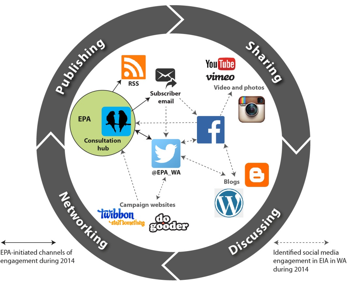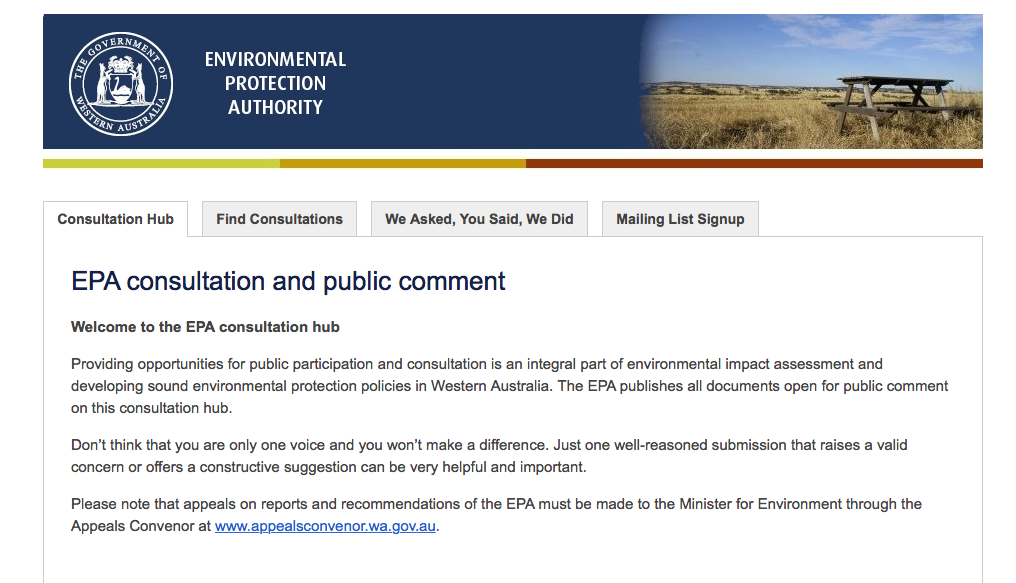Recently we had Donna Weston from ‘Down Under’ pop into Delib’s offices to have a cup (or many cups!) of tea and to chat about all things digital and democracy. Donna is the Communications Coordinator at the Office of the Environmental Protection Authority in the State of Western Australia (WAEPA) and has been using Citizen Space over the last few years.
Donna had just attended the 35th Annual Meeting of the International Association for Impact Assessment (IAIA) last week in Italy. The IAIA is the leading global network on best practice in the use of impact assessments to make informed decisions regarding policies, programs, plans and projects. By bringing together experts and practitioners with diverse backgrounds, the IAIA aims to establish and disseminate best practice for impact assessments. The Office of the Environmental Protection Authority were there to present a paper on how they were using digital tools and social media to revolutionise environmental impact assessments in Western Australia.
Lucky for us, Donna made the extra effort to pop a little further across Europe to our part of the world, to share some of those insights with us. We’re always excited to hear stories from our customers about how they’re engaging people in better ways!
The Western Australian Approach to Social Media in Environmental Impact Assessments (adapted from Cromity, 2012 and Nagle and Pope, 2013)
Donna shared some of the positive engagements they have had through using digital tools and social media to influence the environmental impact assessment process. At the core of their strategy is the Citizen Space consultation hub, acting as the primary tool for publishing, managing and running consultations. In particular the WAEPA used Citizen Space extensively in 2014 for a number of contentious assessments including proposals to implement a shark mitigation program, and proposals to explore and mine in areas of natural bushland with high biodiversity values.This strategy was effective in increasing levels of participation and also helped to raise awareness for sharks and the complex relationship between man and nature. Responses to the three consultations relating to shark mitigation were particularly strong with over 14,000 responses received.
The WAEPA was able to monitor conversations through channels such as Twitter. They used it to direct the public and stakeholders to information relating to impact assessments, and policy development, as well as opportunities to respond to new consultations. Although they are unable to engage in a two way dialogue due to their particular remit and purpose, the EPA was able to take advantage of the networks to disseminate information as well as raise awareness about their work. In particular I was impressed by their application of the social media framework above to ensure they covered and monitored the realms of publishing, sharing, discussing and networking.
The Western Australian experience is hugely informative and provides a helpful case study on how digital tools and social media can positively influence the environmental impact assessment process. These methods offer an often untapped potential for greater public participation. For the WAEPA it has helped them to:
- communicate the clear purpose of environmental impact assessment to stakeholders, providing the opportunities for them to feedback into the decision making process;
- increase the efficiency and cost-effectiveness of large scale public participation;
- become more adaptable during the public consultation process;
- show greater transparency by providing open and immediate access to information;
- better target the interested and affected public for participation.
Being a secondee from the British Civil Service, meeting Donna offered a refreshing and encouraging insight into the use of digital tools and social media internationally. Something I’ll definitely be taking back with me for sure! It’s exciting to see the digital democracy bug catch on across the world and I can’t wait to hear more stories from customers and to celebrate their successes.
With thanks to Donna and her colleagues from the WAEPA.

